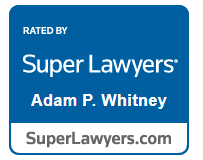GUEST POST BY BRANDON SLOANE
On February 26, 2020, the National Labor Relations Board (NLRB) issued a final rule clarifying the standard for determining joint-employer status under the National Labor Relations Act (NLRA). The NLRB’s ruling is significant for any employer covered under the NLRA (which includes nearly all private-sector employers) because a joint-employer finding carries with it significant rights and obligations that a joint-employer must recognize for its employees.
A joint employer under the NLRA accepts some of the duties and responsibilities that are accorded to an employee’s primary employer. These include: 1) for unionized employees, the joint employer must participate in collective bargaining over the terms and conditions of employment, 2) any picketing directed at a joint employer that would otherwise be secondary (unlawfully picketing someone other than your employer) is considered primary and thus lawful, and 3) each joint employer may be found jointly and severally liable for the other’s unfair labor practices under the NLRA.
The Final Rule, which will go into effect on April 27, 2020, has five major aspects:
-
It specifies that a business is a joint employer of another employer’s employees only if the two employers “share or codetermine the employees’ essential terms and conditions of employment”;
-
It clarifies that the list of essential terms and conditions are: wages, benefits, hours of work, hiring, discharge, discipline, supervision, and direction;
-
It provides that a joint employer is one that possesses and exercises such “substantial direct and immediate control over one or more essential terms and conditions of employment of another employer’s employees” as would warrant a finding that the business meaningfully affects matters relating to employment;
-
It defines “substantial direct and immediate control” as control “that has a regular or continuous consequential effect on an essential term or condition of employment”, and control that is not exercised on “a sporadic, isolated, or de minimis basis”;
-
It specifies that evidence of indirect or contractually reserved (but never exercised) control over essential terms of condition, and of control over mandatory subjects of bargaining under the NLRA other than essential terms and conditions, are indicative of joint-employer status, but only to the extent that it supplements evidence of direct and immediate control.
The Final Rule represents an attempt by the NLRB to clarify unsettled law as to which employers qualify as joint employers under the NLRA. In 2015, the NLRB issued Browning-Ferris Industries (BFI), 362 NLRB No. 186, which held that a company could be deemed a joint employer if it had merely indirect, limited and routine, or contractually reserved but never exercised control over a business’s employees. The BFI ruling helped to enforce joint-employer status for a larger number of businesses under the NLRA. The ruling particularly impacted a business owner’s duties to subcontractors or franchisee employees. The level of control that a business owner or franchisor had over these types of employees is usually more attenuated than what general contractors and franchisee owners would have. But the BFI ruling held they could still be joint employers with indirect or potential control.
The Final Rule, with its necessary requirement for substantial direct and immediate control, will in all likelihood eliminate the obligations that these business owners owed to franchisees and subcontractors under the logic of BFI. The ruling represents a win for employers, who will now have a better sense of exactly which workers they owe NLRA rights and obligations to.
Over 14.5 million Americans belong to labor unions in the United States today, so it should come as a welcome sign for business owners who interact with third party workers such as subcontractors and franchisee employees that only those workers over whom they have substantial direct and immediate control will they be obligated to under the NLRA.
Brandon Sloane is a third-year student at Boston College Law School. He aspires to become a Massachusetts labor & employment attorney after graduation.
Fine print: the above is the work of the author only. The above is not legal advice, but general information. I cannot provide legal advice without a written fee agreement and a full review of your legal matter.
CONNECT WITH ADAM
RELATED PRACTICE AREAS
ADAM’S RECENT POSTS
Navigating Noncompetition Agreements: The Power of Practical Wisdom in Massachusetts
Any lawyer worth their salt can dissect a noncompetition agreement and under Massachusetts law, predict its enforceability. Indeed, this forms the bedrock of sound legal advice, but it is merely the beginning. The real challenge lies in the practical and strategic...
Severance Agreements: Why Review and Analysis Are Essential, and When to Seek Legal Advice
When deciding whether to sign a separation agreement or severance agreement with your employer, consider the following issues: Consideration: What are you getting for your signature? What are you giving up? Is the trade-off worth it? Waiver of legal rights:...
Legal Representation for Executives, Professionals or Managers Who Have Been Terminated
Losing your job is one of the most difficult things a person can go through. As someone who has been working in employment law for over 25 years, I can tell you that this is especially true for executives, professionals, and other high-level employees. If you have...
OUT OF STATE LLC’S MUST REGISTER IN MASSACHUSETTS
If you are a “foreign” Limited Liability Company, such as a Delaware LLC, you must register in Massachusetts if you do business here. See Mass. Gen. Law c.156C, §54. That’s not difficult, but it does take a bit of effort and yearly filing fees. You must also have a...
COVID-19 AND LAW PRACTICE
It’s been a crazy ride for several weeks. In some ways, the practice of law is the same. In some ways, it’s different. Sometimes it just feels different. In spite of the photo, I've been able to work in my satellite office and have been the only one here....
GET IN TOUCH
Law Office of Adam P. Whitney
265 Franklin Street, Suite 1702Boston, MA 02110
ABOUT THE FIRM
PRACTICE AREAS
Business Litigation and Employment Law
Outside General Counsel
Shareholder / LLC / Partnership Disputes
ATTORNEYS
Adam Whitney
RESOURCES
Testimonials
Clients
Success Stories
DISCLAIMER
No attorney-client relationship is established by your use of this site. You must not send or share any confidential information about you or any legal issue without Attorney Whitney's express written permission. The content of this website may be considered advertising for legal services under the laws and rules of professional conduct. The content does not constitute legal advice. The content is for information purposes only. Legal advice cannot be provided unless you hire my firm and we perform a full review of the legal matter and the most current, applicable law. The law in your state may be different than Massachusetts, so the information in the content may be completely irrelevant if you are outside of Massachusetts.



